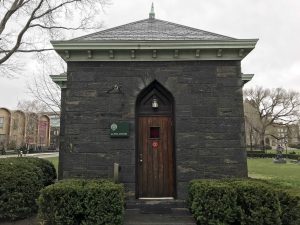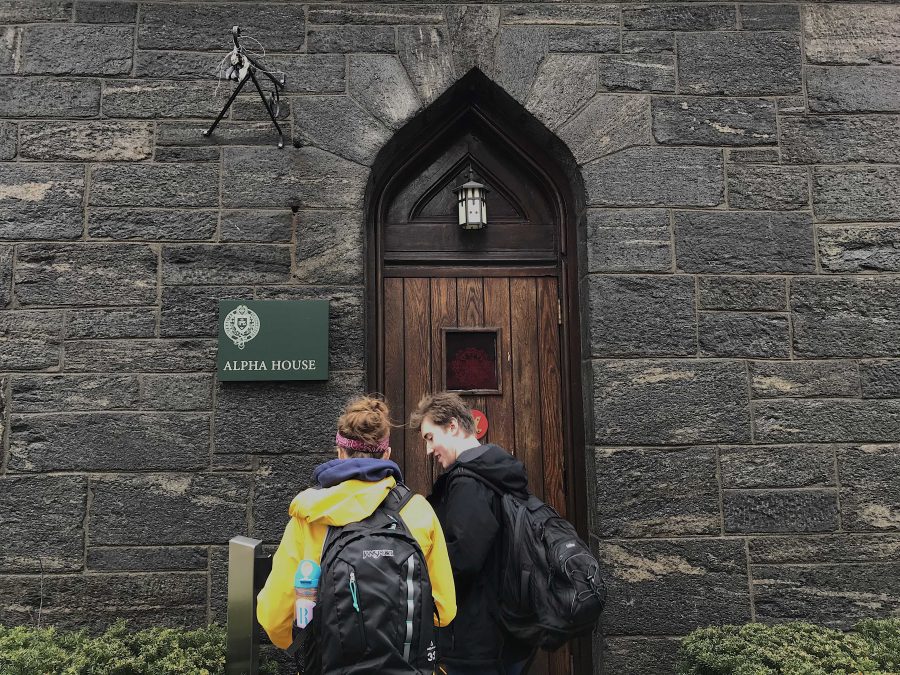By Erica Scalise

A proposal to revise the Fordham Honors Program curriculum is currently awaiting approval from the College Council, the Core Curriculum Committee and the Arts & Sciences Council.
Eve Keller, director of the Fordham College Honors Program at Rose Hill, said that the process of changing the curriculum began when she convened a committee comprised of faculty and students during the fall of 2017.
“We spent the year working on the project of assessing and revising the program. In May of last year, we submitted a proposal to Dean Mast,” said Keller.
Though students are satisfied with the rigorous course load and structure of the Honors Program, several students are looking forward to the program’s potential changes: specifically, changes aiming to add more diversity to the program’s curriculum.
“I hope they make the program more flexible, so students can really take advantage of the liberal arts style of education [and] hope they make it less Western-centric,” said Joshua O’Dell, FCRH ’21. “The honors core is grounded heavily in western thought; the furthest east we go is the Near East, and the furthest south is Egypt and North Africa.”
David Sellers, FCRH ’20, agrees with O’Dell. He said he would like to see the curriculum shift to a more wide-range, varied coverage of core subjects, as well as less of a Eurocentric focus.
The program’s curriculum is currently designed so that material from various classes is buildable and able to connect from class to class, according to O’Dell.
“We take ancient classes first semester, medieval classes, early modern classes and then contemporary classes,” he said. “The benefit of this is that what I study in history and philosophy provides the context for the pieces I’m reading in lit, which is illustrated by what I’m studying in art. The way all the classes work together is really remarkable.”
Emma Maliborski, FCRH ’20, like Sellers, hopes that the curriculum changes will create a more inclusive program that applies to students’ studies outside of the program.
“As a sophomore in my last semester in the chronological part of the program, I’ve only had two classes that placed emphasis on works and developments from outside the Western world,” said Maliborski. “It would be exciting to see the core focus of the program remain the same, while allowing students to have more freedom as they explore both the honors curriculum and their majors.”
Katherine DeFonzo, FCRH ’18, said she also values the honors program’s commitment to cultivativating a cohesive curriculum, but finds it difficult to foresee these changes, given that she is graduating next month.
However, she said she has suggestions for the program’s changes.
“I hope that the Student Advisory Council that was formed by Dr. Keller will continue to find new ways to plan honors-wide events that take into account the interests of students and allow them to explore and engage with the local Bronx community,” said De Fonzo.
Sellers anticipates that some of the concerns he holds about the honors program will be minimized by these potential curriculum changes and will create a more inclusive feel for those not in the program.
“I have found that the Honors Program is viewed as exclusive and elitist from my interactions with people outside the program,” said Sellers. “I think the fact that our building, though I love it dearly, is named Alpha House, contributes to a perception of the program as elitist.”
Keller said she suspects the decision from the College Council, the Core Curriculum Committee and the Arts & Sciences Council on the proposed revisions will be completed, at the earliest, by the end of the month.







































































































































































































